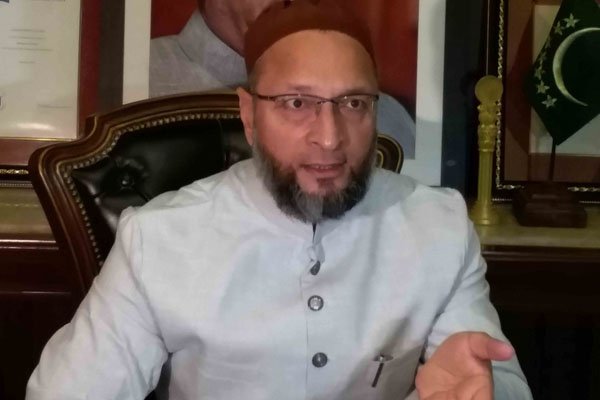Amidst the impending inauguration of the Ram temple in Ayodhya, AIMIM chief Asaduddin Owaisi has voiced strong sentiments, stating that the Babri Masjid was “very systematically snatched” from the Muslim community. Owaisi questioned historical events, alleging that the sequence of incidents, including the placement of idols and the demolition of the mosque, led to the current situation. His remarks come as a backdrop to the politically charged atmosphere surrounding the inauguration of the “historic” Ram temple.
Owaisi’s Statements and Historical Events:
Asaduddin Owaisi highlighted three significant historical incidents contributing to the present circumstances. He referenced the placement of idols inside the Babri Masjid during Congress’s GB Pant’s chief ministership in the 1950s, the opening of locks in 1986, and the demolition of the mosque on December 6, 1992, which he attributed to the BJP and the Sangh Parivar.
Questioning Historical Choices:
Owaisi posed critical questions, asking whether the situation would be different today if certain actions were not taken in the past. He specifically mentioned the possibility of a different outcome if the idols had been removed in the 1950s or if the locks had not been opened in 1986. Owaisi raised these questions, asserting that they remain unanswered.
Criticism of Other Political Parties:
Owaisi criticized other political parties, including Delhi Chief Minister Arvind Kejriwal’s announcement of organizing religious events in government schools. He accused these parties of targeting the majority community’s votes, alleging a lack of scrutiny on such actions. Owaisi’s remarks emphasized his perspective on the political dynamics surrounding the Ram temple inauguration and its potential impact on communal sentiments.
Controversy and BJP’s Response:
Owaisi’s recent remarks advising Muslim youths to stay alert against attempts to “snatch away” mosques had previously triggered controversy, with the BJP accusing him of “communalising” the consecration of the Ram temple in Ayodhya. The political tension surrounding the temple inauguration has further fueled the exchange of statements between different political factions.
Upcoming Ram Temple Inauguration:
The ‘Pran Pratishtha’ of Shri Ram Lalla is scheduled for January 22, marking a significant step in the Ram temple’s inauguration process. The ceremony holds immense cultural and religious significance, with the idol sculpted by Arun Yogiraj taking its place inside the Sanctum Santorum.
As the countdown to the Ram temple inauguration continues, Asaduddin Owaisi’s statements underscore the deep-rooted sentiments and historical grievances associated with the Babri Masjid. The questioning of past choices and criticism of political maneuvers highlight the complex interplay of history, religion, and politics in the lead-up to this historic event. The statements also reflect the broader socio-political landscape, where differing perspectives converge, contributing to an atmosphere charged with emotion and historical resonance.
